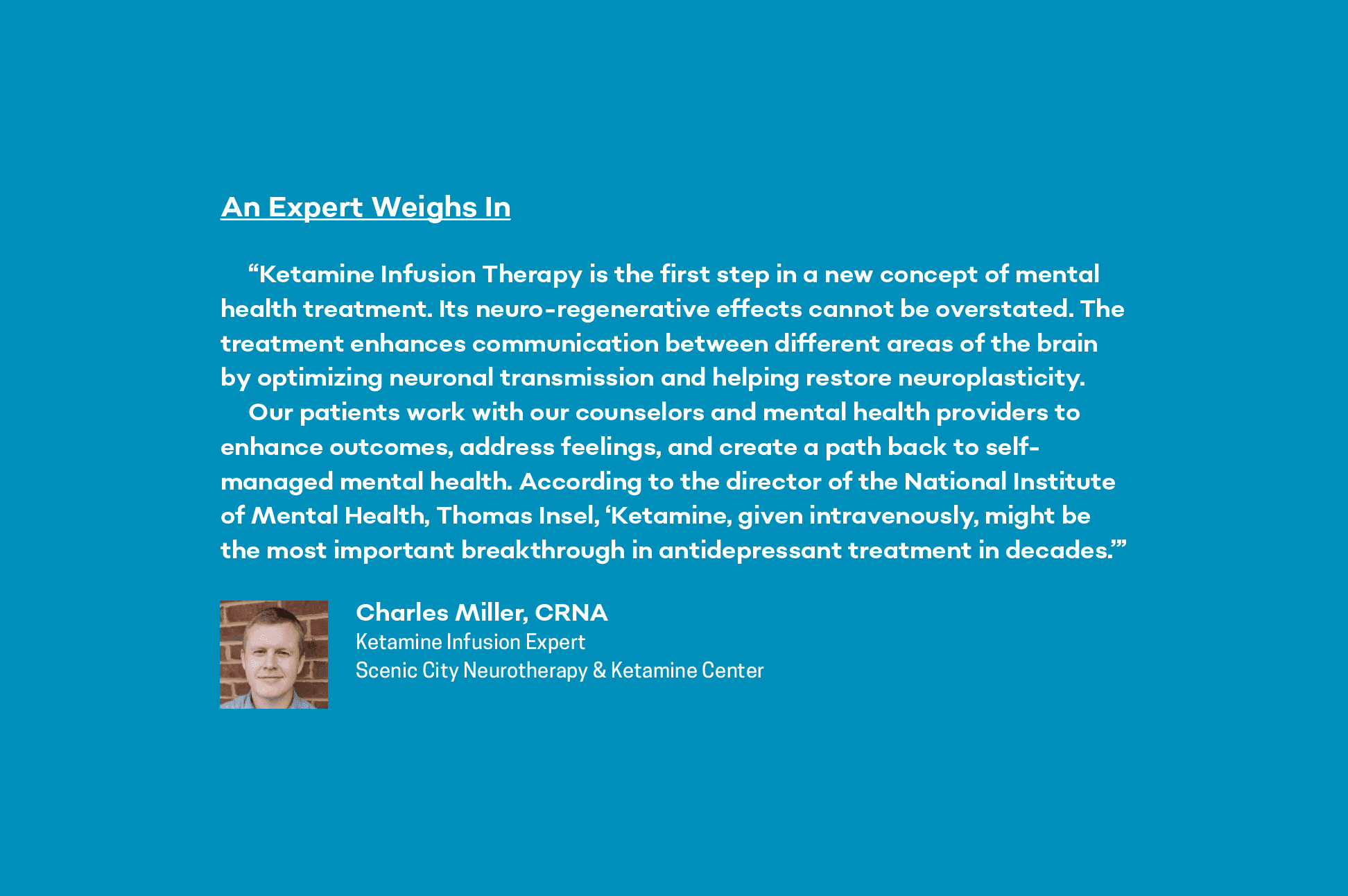Advancements in Medicine Section
Understanding Ketamine Infusion Therapy
Ketamine infusion is an intravenous therapy for those suffering from mental health disorders or neuropathic pain who are considered treatment resistant. While ketamine has been used in emergency rooms and hospitals as a pain-blocking anesthetic for decades, its ability to reverse depressive symptoms has been a more recent discovery. It’s able to cause a dissociation between the thalamus and the limbic system, which can be thought of as a dissociation between the mind and body.
Good Candidates
Ketamine infusion therapy is an option for individuals suffering from the following mental health conditions who have not had successful responses to other treatment methods:
Major Depressive Disorder
Obsessive-Compulsive Disorder
Post-Traumatic Stress Disorder
Bipolar Disorder
Postpartum Depression
Social Anxiety Disorder
Your provider will complete a full medical history to understand your symptoms, treatment history, and other conditions that may influence the effectiveness of therapy.
How It Works
Ketamine changes the way brain cells communicate with each other. It blocks a specific type of brain receptor known as NMDA (N-methyl-D-aspartate), which can overstimulate brain cells and lead to depressive side effects, while also promoting the production and release of a protein called BDNF (brain-derived neurotrophic factor), which creates healthy neuronal connections.
With ketamine infusion therapy, a patient will receive a subanesthetic dose through an IV. These infusions, which take 40 minutes to fully disperse, should be administered over approximately two weeks for stabilization. The number of treatments may vary from patient to patient and will be determined by the attending provider. Many patients will require booster treatments over time to reinforce the ketamine’s effectiveness.
Benefits for Patients
While antidepressants can take weeks or longer to become effective and dosages can be hard to determine, ketamine infusion therapy is designed to work within a few hours. For those struggling with debilitating depression or anxiety, a quick IV can be lifesaving. And for those who are treatment resistant, it can make an enormous difference in quality of life.



